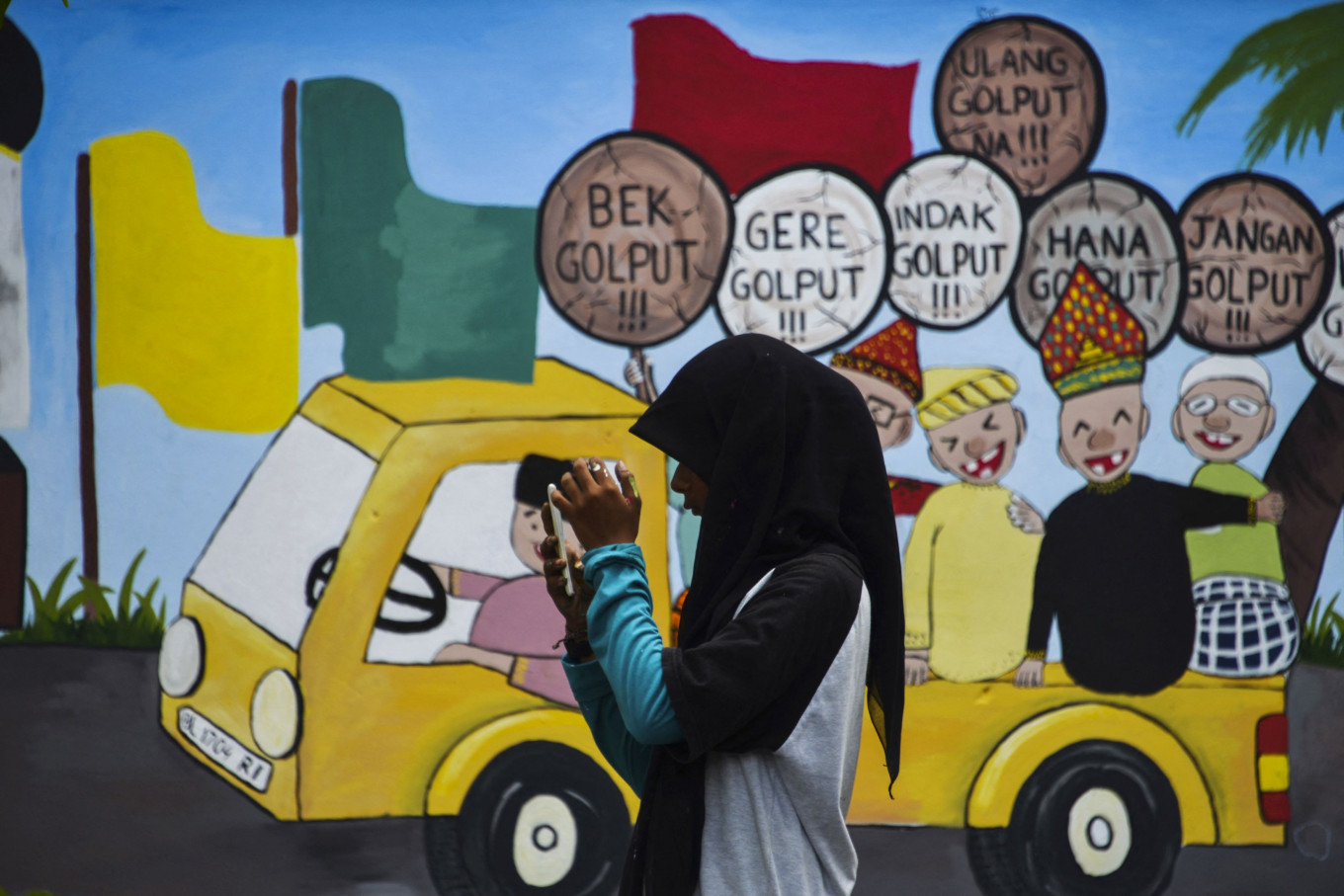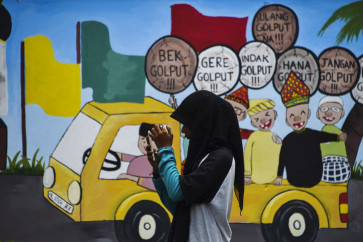Popular Reads
Top Results
Can't find what you're looking for?
View all search resultsPopular Reads
Top Results
Can't find what you're looking for?
View all search resultsThe rise of the young religious progressives or hidden conservatism?
In evaluating government institutions, people from different age groups show similar patterns, including that they seem to put the highest trust in the country’s military.
Change text size
Gift Premium Articles
to Anyone

In early March 2022, we applied a novel approach to conducting a public opinion survey in Indonesia to study how Indonesians decide whether particular politicians are trustworthy. Inspired by The Nature Study, the study aimed to understand the cultural influences on word meanings and focused on how people generally viewed and valued political trust.
The survey was done fully online to allow parallel and real-time data collection across countries. Though the survey was not specifically meant to study how Indonesians view the next presidential election, since it took place in early 2022, shortly before some politicians announced their plans to run for the presidency, it provided us with a rare opportunity to look into how Indonesians of different age groups and political views perceived the current government and hence, what they expected from their presidential candidates.
The survey gathered answers from 1,239 adults from March 2 to 10, 2022, through a market research portal that delivered real-time responses from real consumers worldwide. As we can expect, since it was an online survey, our respondents were mostly Indonesian youngsters. The majority were Indonesian members of Gen Z in their 20s, who comprised almost half of our survey participants. The number was followed by millennials – those in their 30s – who constituted a third of our survey participants.
We asked respondents to rate their religiosity. Obviously, it is difficult to find Indonesians who self-rated themselves as “not religious at all”. However, the older people get, the less likely they are to self-rate as not religious. Most participants rated themselves as somewhat religious, whereas the oldest generation rated themselves as relatively more religious.
Interestingly, unlike what is mostly documented worldwide, where religiosity tends to correlate positively with conservatism, our respondents showed a positive correlation between their self-perception of religiosity and progressiveness.
Contrary to how religiosity is mainly associated with political views, those who rated themselves as more religious seemed to think of themselves as most progressive and expect more government actions and intervention. People of all age groups seemed to self-rate as progressives instead of conservatives and consistently expect more government actions and intervention.

Though the older age group still self-rated as somewhat progressive, we could see that compared to other age groups, they tended to self-rate as slightly less progressive and wanted less government action and intervention, which implied conservatism.

















